What is Drupal Used For and Why Should a Business Use It?

Ever wondered what Drupal is used for and how it matters? Drupal powers 1.7 million websites globally, including 11% of the top 10,000 most-visited sites. It's the CMS of choice for organizations like Harvard, IBM, and government agencies that need enterprise-level security, complex content management, and scalability. While it requires higher upfront investment than basic CMS platforms, Drupal delivers superior ROI for businesses with complex digital needs, multiple stakeholders, and growth ambitions.
If you've ever wondered what powers some of the world's biggest websites (from government portals to university sites) you've probably encountered Drupal without even knowing it. But what exactly is Drupal used for, and could it be the right solution for your next web project? Let's dive in and explore this versatile platform.
What is Drupal, Really?
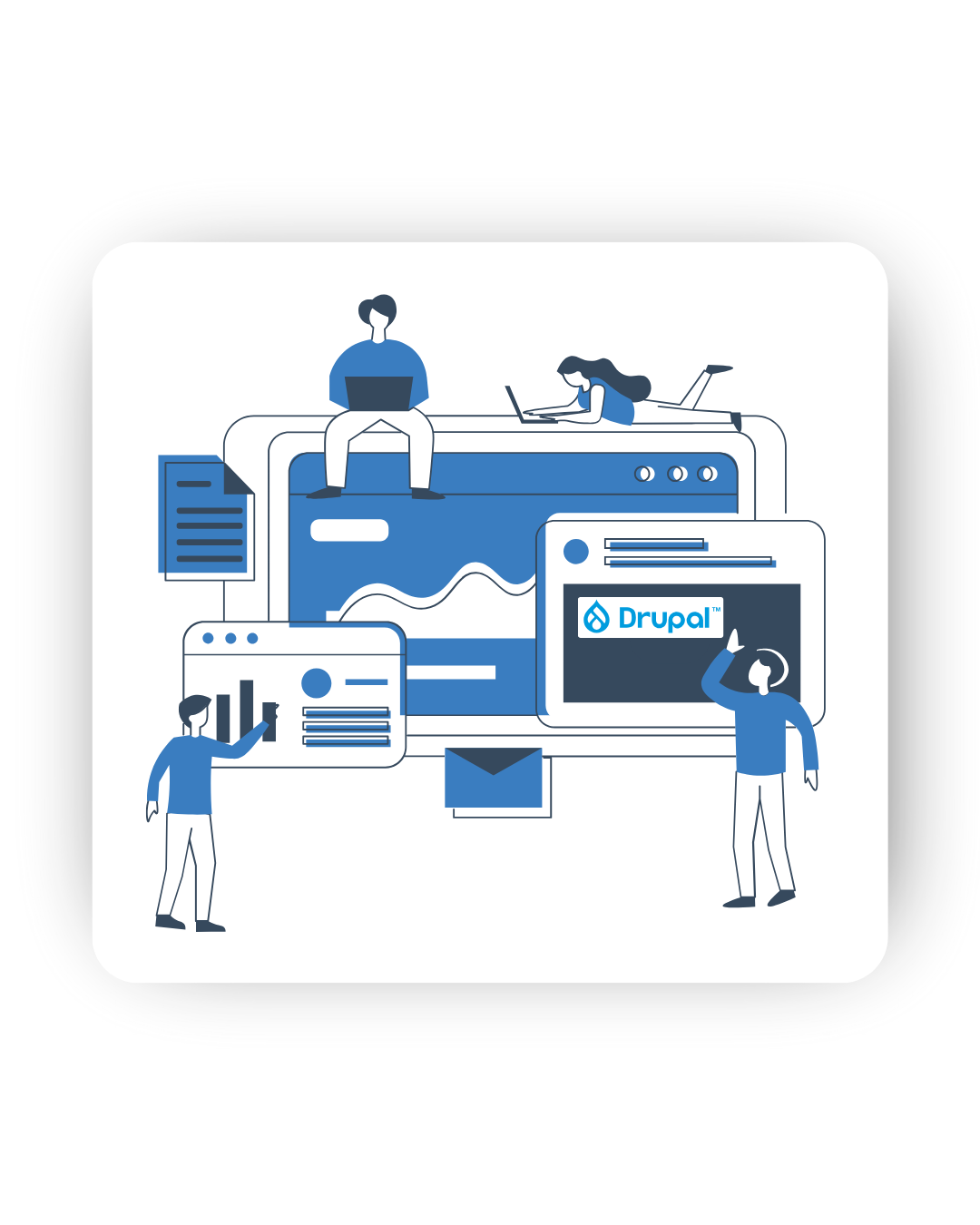
Drupal is a free, open-source platform that helps you build and manage websites—but calling it "just another CMS" would be like calling a Tesla "just another car."
Key Insight: Drupal is designed to handle everything from simple blogs to complex enterprise websites with thousands of pages, multiple user roles, and intricate workflows. The best part? It's completely free to download and use, with no licensing fees or vendor lock-in.
What Drupal Powers
Here's something that might surprise you:
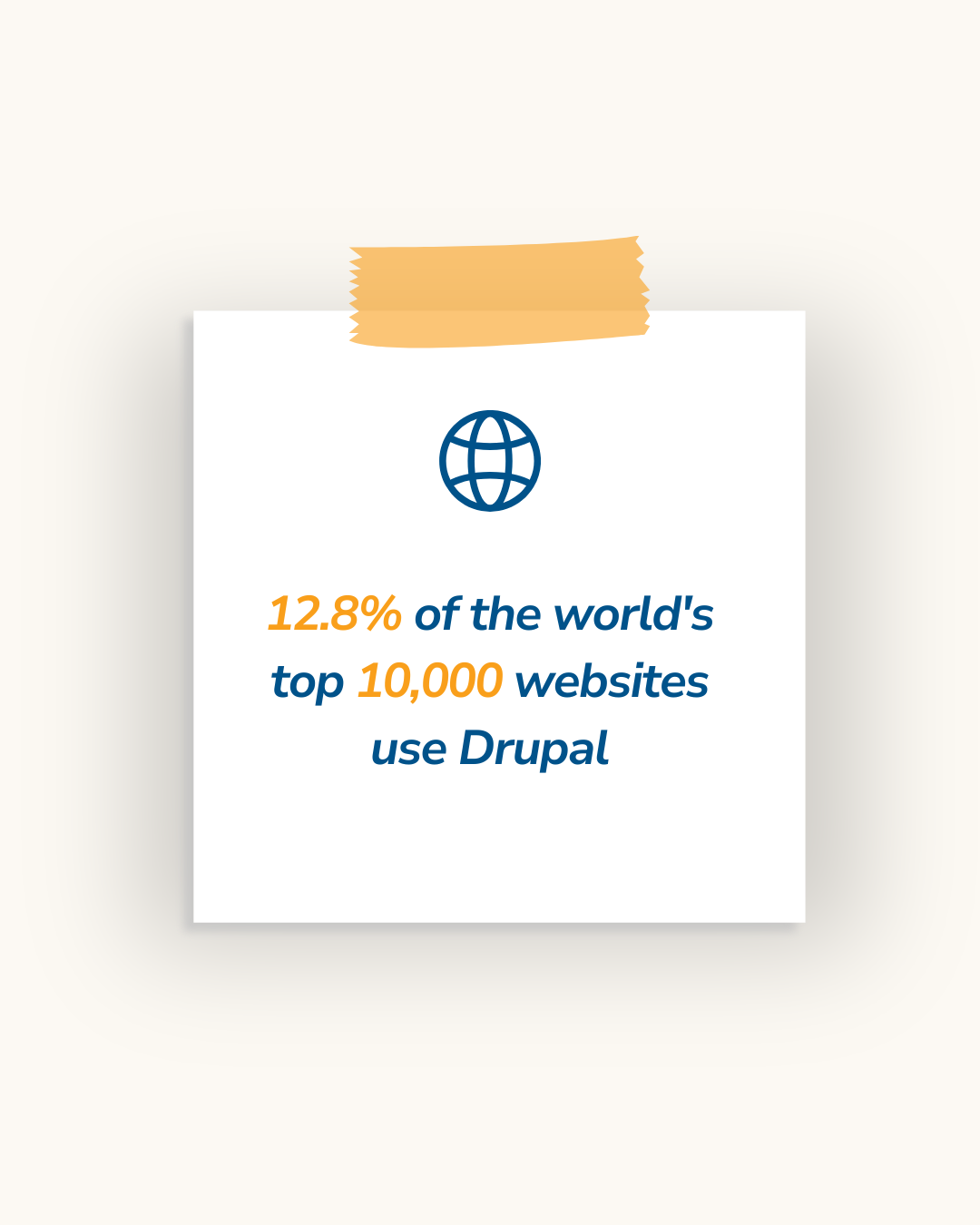
Source: (Global Media Insight (2025)
Currently, there are 1.68 million active websites.
We're talking about household names like:
Government Sites:
- The Government of Australia
- US Internal Revenue Service
Universities:
- Princeton, Harvard
- University of Oxford
Major Corporations:
- IBM, Verizon
- NBC News, The Economist
Nonprofits:
- Doctors Without Borders
- UNESCO
These organizations didn't choose Drupal by accident—they picked it because it can handle their complex needs while remaining flexible and secure.
Core Uses of Drupal

There are core areas for what Drupal is used for. These include:
Corporate Websites and Business Portals
Perfect for multi-departmental corporate sites, customer self-service portals, B2B platforms with restricted access areas, and sites requiring strict brand consistency.
E-commerce and Online Stores
Companies like J.Crew and Canada Goose trust Drupal for unlimited product types, complex pricing rules, enterprise system integration, and multi-site management for different brands.
Government and Public Sector Websites
Government websites need accessibility, security, and massive content handling. Drupal's built-in accessibility features and robust security make it ideal for citizen service portals, public information websites, and multilingual government sites.
Educational Institution Websites
Universities love Drupal for student information systems integration, course management, faculty profiles, and alumni networks with donation systems.
Media and Publishing Platforms
News organizations like The Economist and NBC News rely on Drupal for editorial workflows with multiple approval stages, content scheduling, media libraries, and multi-author collaboration tools.
Nonprofit and NGO Websites
Perfect for donation processing, volunteer coordination, event management, and membership systems—all while staying within budget thanks to Drupal's open-source nature.
Is Drupal Right for Your Business? Quick Decision Guide
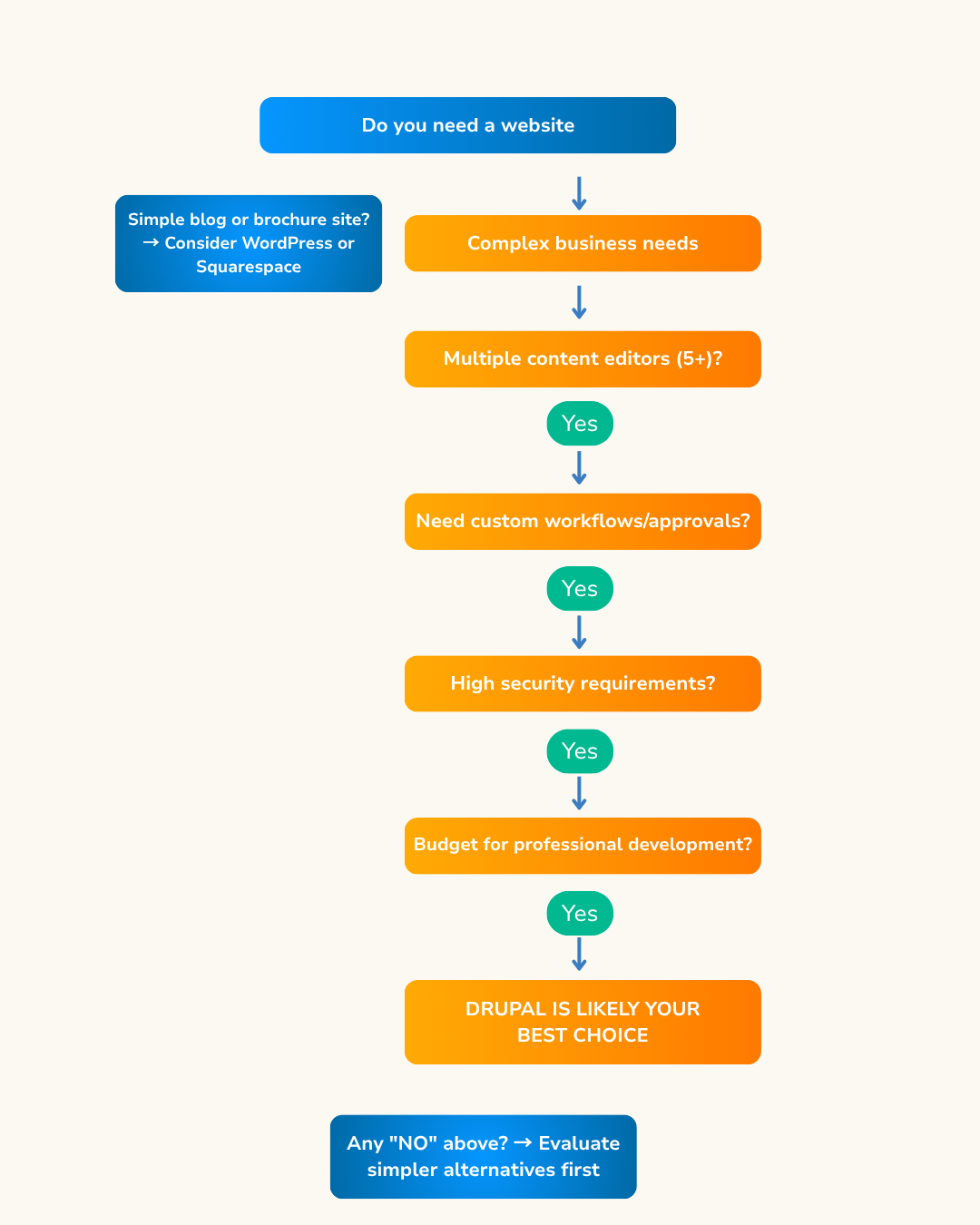
Considering Drupal for your organization? Our team at SJ Innovation has helped nonprofits, corporations, and institutions leverage Drupal's power. Let's discuss your specific needs
When Should You Choose Drupal?
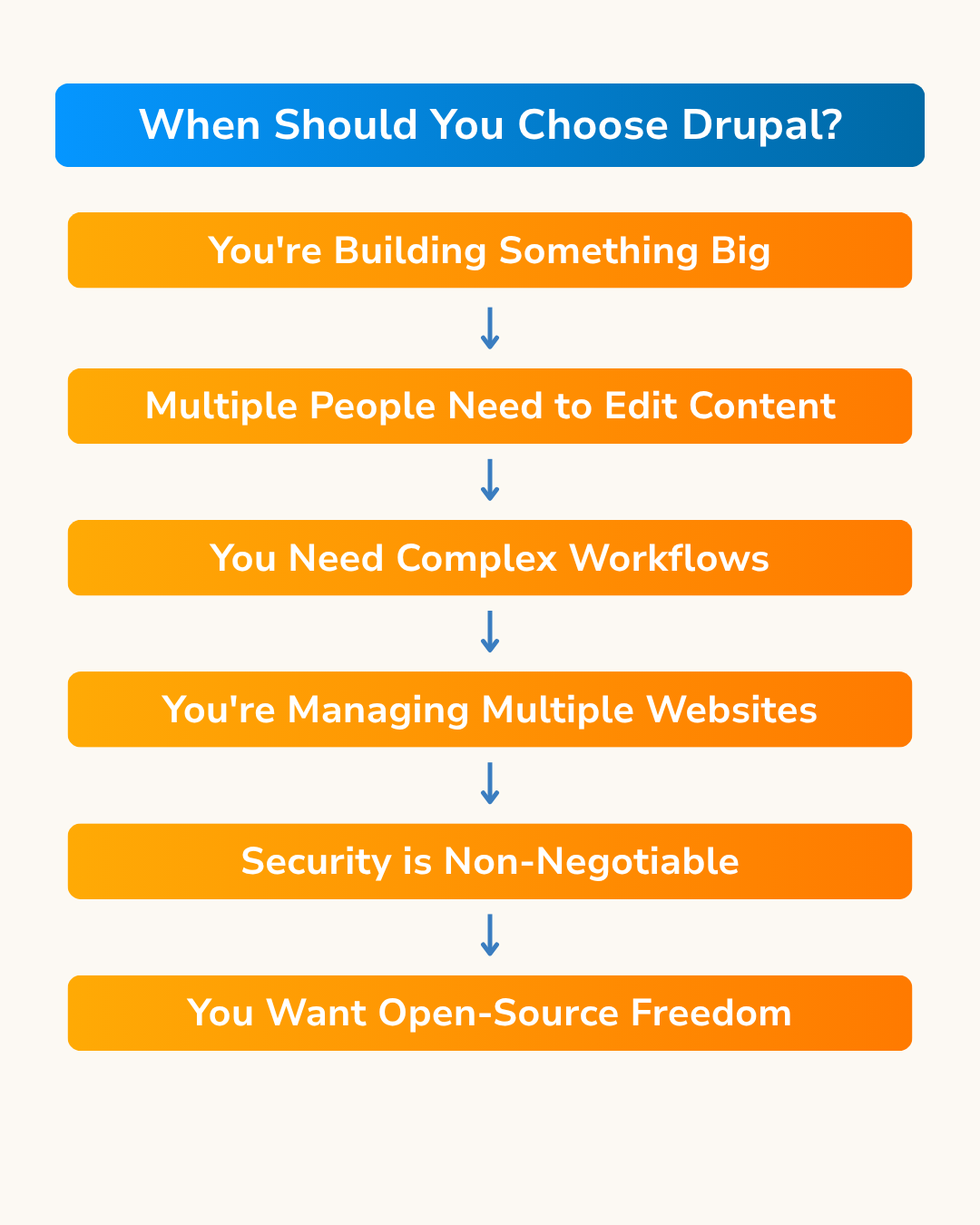
✅ You're Building Something Big
If your website has dozens (or hundreds) of pages.
✅ Multiple People Need to Edit Content
Have a team of 5 or more people who need to create and edit content.
✅ You Need Complex Workflows
Your content goes through multiple stages—draft, review, approval, and scheduled publishing.
✅ You're Managing Multiple Websites
Want to run several related websites and need to share users, media, or content.
✅ Security is Non-Negotiable
For organizations handling sensitive data or requiring high security standards.
✅ You Want Open-Source Freedom
No vendor lock-in, no licensing fees, complete control over your code.
Getting Started: Is Drupal Right for Your Project?
Now that you know what Drupal is used for, honestly assess your needs:
Drupal is probably right if you need:
- Complex content types and relationships
- Multiple user roles with different permissions
- Integration with other business systems
- High security and compliance requirements
- Scalability for future growth
You might want to consider alternatives if you need:
- A simple blog or basic business website
- Something up and running in a few days
- Minimal ongoing maintenance
- A very tight budget for development
What Makes Drupal Special?
Here are a few elements that set Drupal apart:
Flexibility That Grows With You
Drupal's modular system means you can start simple and add features as you need them. Need an event calendar? There's a module for that. Want to integrate with your CRM? There's a module for that too.
Security You Can Trust
With a dedicated security team constantly monitoring for vulnerabilities and releasing regular updates, Drupal has earned the trust of government agencies and Fortune 500 companies.
Global Reach
Built-in multilingual support means you can create content in multiple languages without breaking a sweat—perfect for organizations serving global audiences.
SEO-Friendly Out of the Box
Clean URLs, customizable meta tags, and built-in XML sitemap generation help your site rank better in search results without extra plugins.
Industries That Love Drupal
Healthcare & Pharmaceuticals: Pfizer, Novartis - Patient portals, research databases, compliance sites
Financial Services: Fannie Mae, NASDAQ - Secure financial information, customer portals
Entertainment & Media: Warner Music Group, SEGA - Content management, fan platforms
Manufacturing & Technology: Lamborghini, IBM - Product catalogs, dealer portals, support systems
Ready to join these industry leaders? SJ Innovation has experience across all these sectors. Schedule a consultation to see how Drupal can transform your digital presence
The Investment: Understanding Drupal Costs
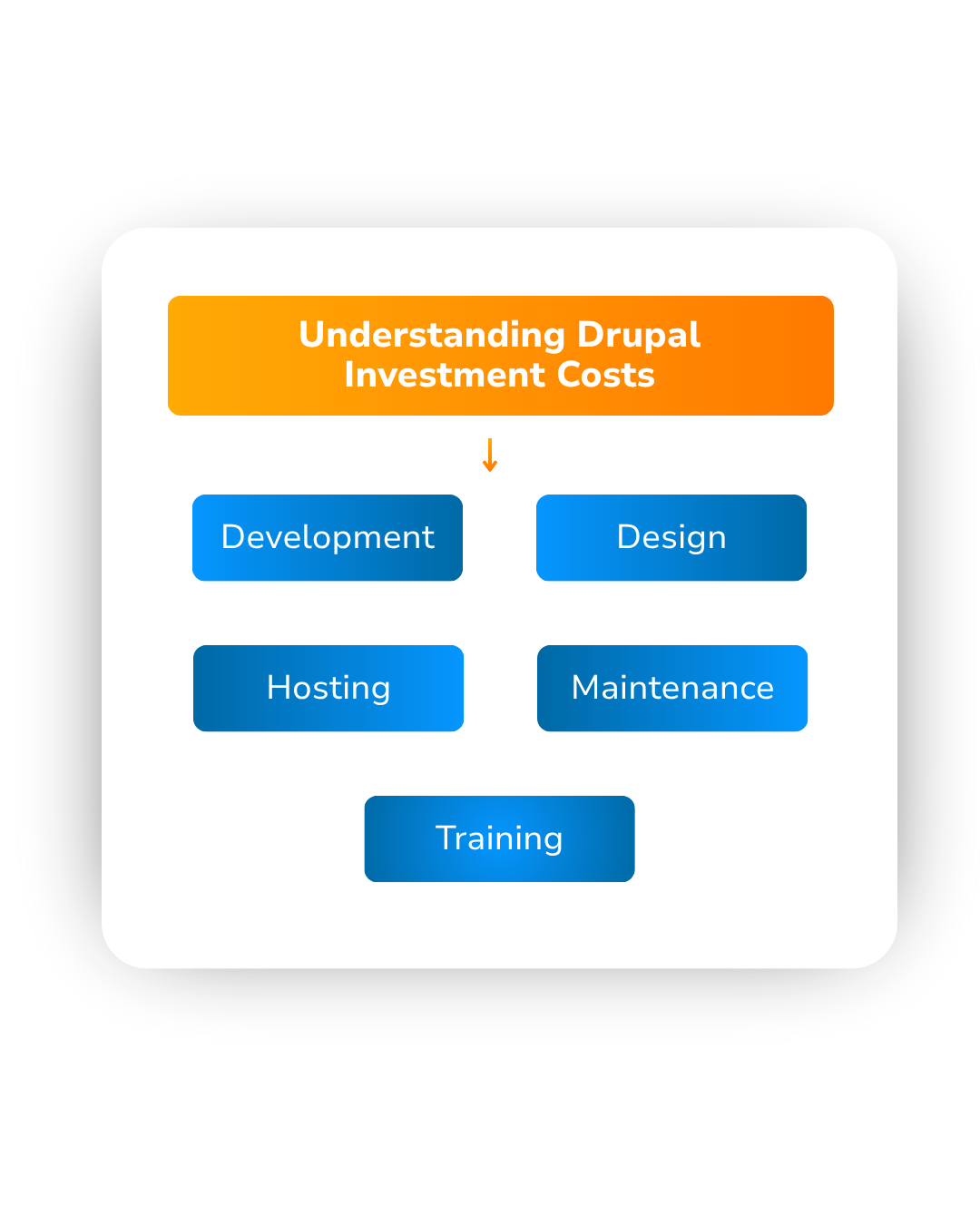
While Drupal itself is free, building a Drupal site involves:
- Development: More complex than WordPress but less expensive than enterprise solutions
- Design: Custom themes require professional design work
- Hosting: Can range from basic shared hosting to enterprise cloud solutions
- Maintenance: Regular updates and security patches
- Training: Your team needs time to learn Drupal's features
Real-World Success Stories
Government of Australia
Challenge: Manage multiple department websites with shared user accounts and consistent branding across hundreds of pages.
Solution: Integrated Drupal multi-site architecture with centralized user management.
Princeton University
Challenge: Handle student portals, course catalogs, faculty profiles, and alumni networks from one platform.
Solution: Custom Drupal implementation with integrated academic systems.
The Economist
Challenge: Manage complex editorial workflows, subscription systems, and multimedia content for global readership.
Solution: Advanced Drupal publishing platform with automated workflows.
Frequently Asked Questions
Is Drupal difficult to learn?
For content creators, Drupal has a steeper learning curve than WordPress, but most users become comfortable within a few weeks of training. The interface is logical once you understand the concepts.
How secure is Drupal really?
Drupal has an excellent security track record. The Drupal Security Team provides regular updates, and many government agencies trust it with sensitive information. However, like any platform, it requires proper configuration and maintenance.
Can Drupal handle high traffic?
Absolutely. With proper hosting and caching, Drupal sites can handle millions of visitors. Many high-traffic sites like Weather.com run on Drupal.
What about mobile responsiveness?
Modern Drupal themes are mobile-responsive by default. The platform includes tools for creating mobile-optimized experiences without separate mobile sites.
How does Drupal compare to WordPress?
WordPress is easier for simple sites and has more theme options. Drupal excels for complex sites with multiple content types, user roles, and business system integrations. Think of WordPress as a sports car and Drupal as a fully-equipped commercial vehicle—both get you places, but they're built for different purposes.
Ready to Explore Drupal for your Organization?
If you've made it this far, chances are Drupal might be exactly what your organization needs. The key is working with experienced developers who understand both Drupal's capabilities and your business requirements.
What Happens Next?
1. Requirements Analysis We'll discuss your specific needs, current challenges, and growth plans to determine if Drupal is the right fit.
2. Architecture Planning If Drupal makes sense, we'll design a system architecture that serves your immediate needs while allowing for future expansion.
3. Development Roadmap We'll create a realistic timeline and budget that accounts for your priorities and resources.
4. Launch and Beyond We'll deploy your Drupal site, train your team, and provide ongoing support to ensure your investment pays dividends for years to come.
Getting Professional Help
Building a successful Drupal site isn't a DIY weekend project—it's a strategic investment that deserves professional expertise. Here's what to look for in a Drupal development partner:
Essential Qualifications:
- Certified Drupal developers with proven track records
- Industry experience in your specific sector
- Portfolio of complex sites similar to your requirements
- Ongoing support services for maintenance and updates
- Training capabilities for your content team
Red Flags to Avoid:
- Promises of "quick and cheap" Drupal sites
- No examples of enterprise-level Drupal work
- Reluctance to discuss ongoing maintenance
- One-size-fits-all approach to complex requirements
The SJ Innovation Advantage
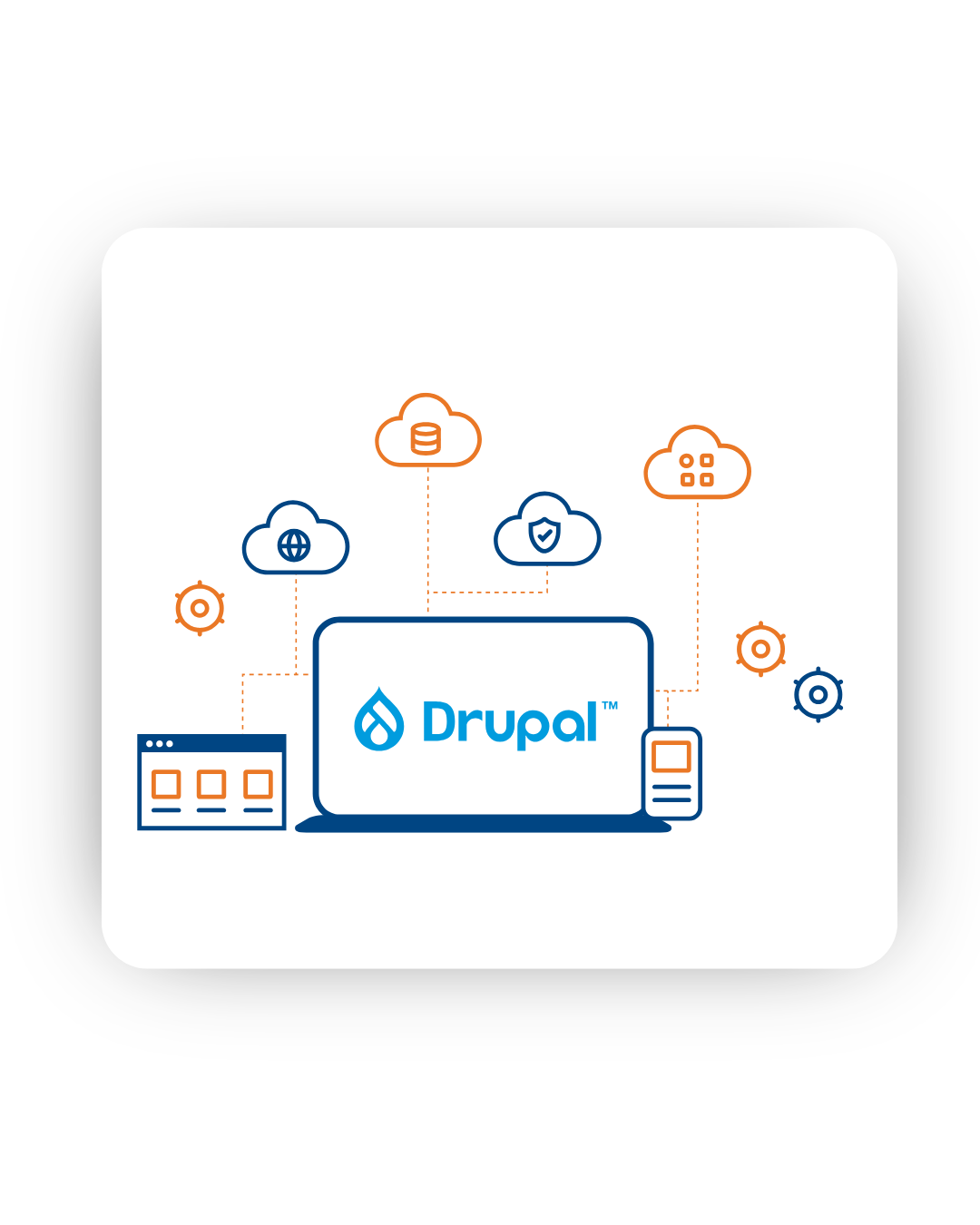
At SJ Innovation, we've helped organizations across industries use Drupal's power to transform their digital presence. Our approach combines technical expertise with strategic thinking:
Why Organizations Choose Us:
- Deep Drupal expertise with certified developers
- Industry-specific experience across healthcare, education, nonprofits, and enterprise
- Strategic partnership approach where we're invested in your long-term success
- Comprehensive training and support to maximize your team's capabilities
- Transparent communication throughout the entire process
Take the Next Step
Ready to explore what Drupal is used for and how Drupal can transform your organization's digital capabilities? We're here to help you make an informed decision. Our Drupal developers help you every step of the way so you get final products that guarantee success.

Why Is Software Testing and QA Important for Any Business?

What Is AWS Migration Service? How It Can Be Done For Magento 2?


